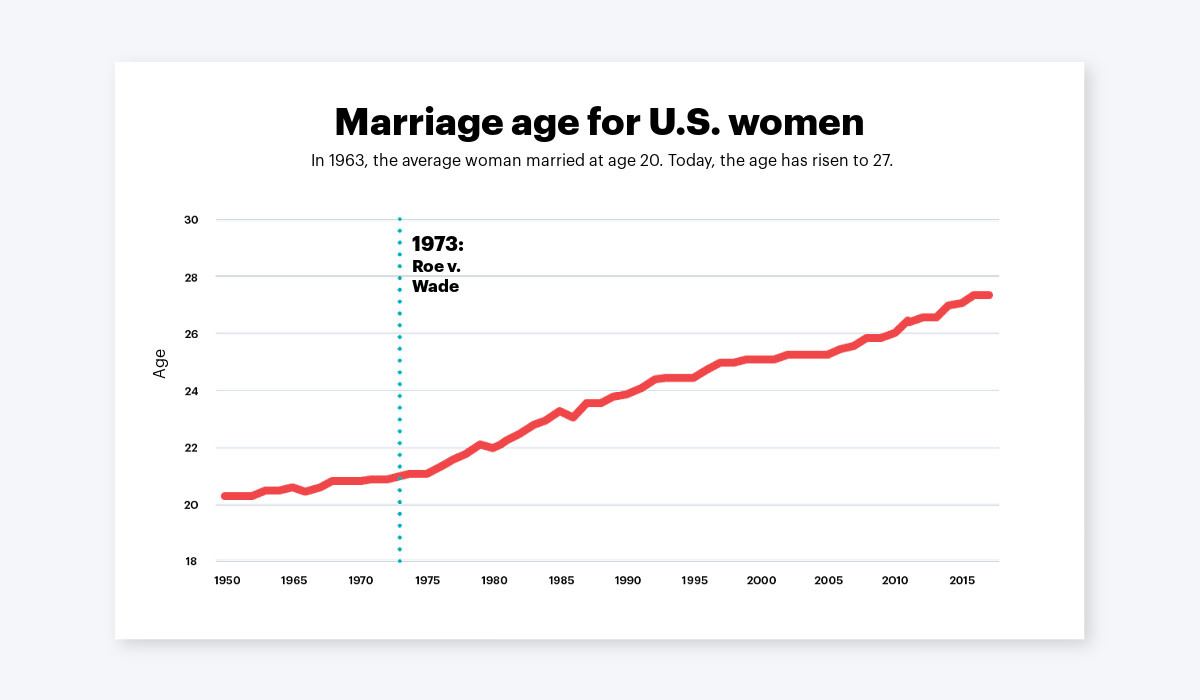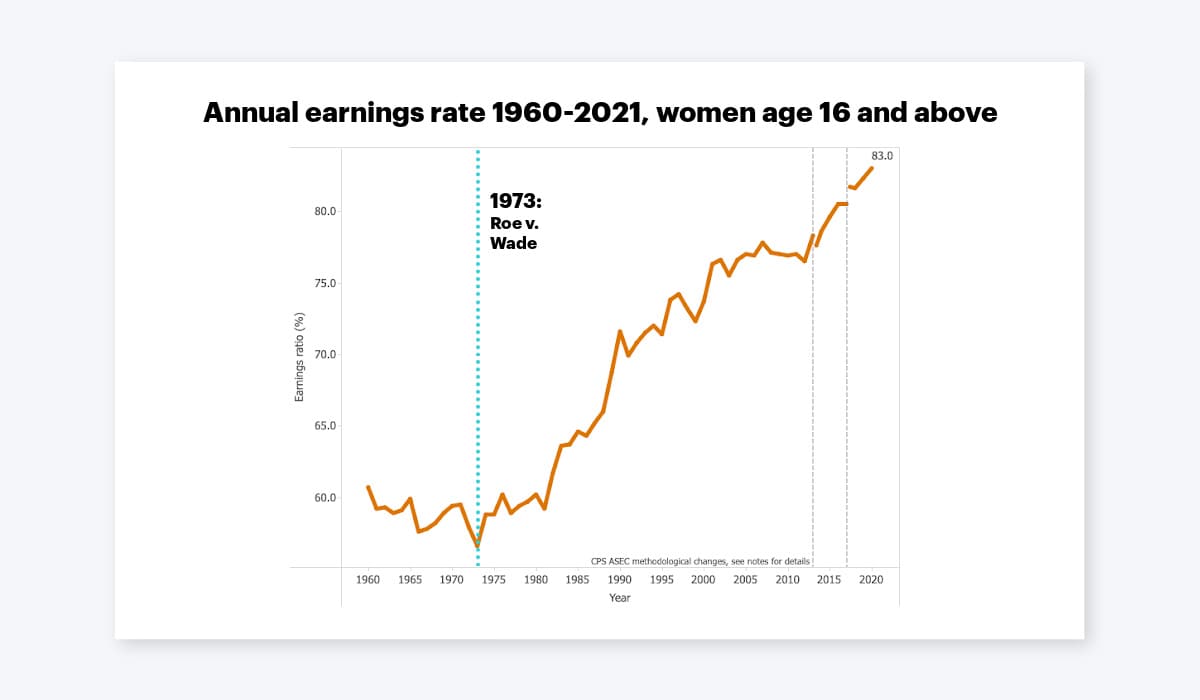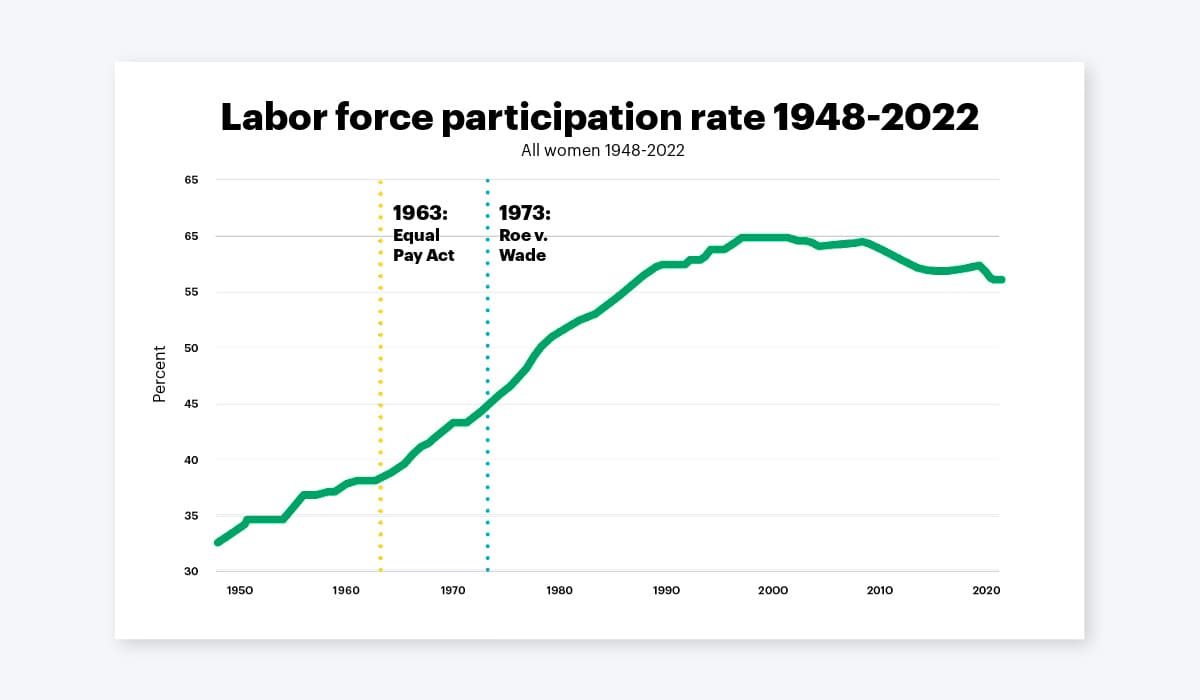How Overturning Roe v. Wade Will Affect Employer/Employee Relationship Efforts
DEIB efforts at organizations in the United States took a hit when the Roe v. Wade ruling was overturned. Learn how employers are responding.

Diversity, equity, inclusion and belonging (DEIB) efforts at organizations with employees in the United States took a hit this June as the U.S. Supreme Court overturned the 49-year-old Roe v. Wade ruling protecting the right to safe and legal abortion. As the unprecedented reversal splinters the United States into state-by-state reproductive legal rights, HR leaders struggle to figure out what this means for their efforts to promote diversity, equity, inclusion, and belonging in a meaningful, effective way.
In some cases, abortion care access depends on the employer/employee relationship
Gallup polls show Americans’ support for abortion in all or most cases at 80% in May 2021, while the Pew Research Center found that 59% of adults believe abortion should be legal. With the recent ruling not reflective of what the people want, continued access to abortion care is falling to employers—often the source of health benefits for many employed Americans. Some employers have already taken action. Airbnb enacted an abortion-access policy in May of 2021 for Texas-based employees following the SB8 bill going into effect, while Apple, Microsoft, Disney, and Dick’s Sporting Goods, to name only a few, quickly issued statements committing to providing healthcare and travel expenses for employees seeking abortion care now that the Supreme Court has overturned Roe v. Wade.
Even those commitments to employees are not without their downsides. Requesting travel reimbursement for abortion care jeopardizes an employee’s right to confidentiality around their healthcare needs, and this type of out-of-plan benefit could cause employees to pay additional tax on the amount reimbursed.
With many companies employing people in multiple states, or even countries, how will HR departments handle this new set of needs? Let’s first take a look at how women have progressed in the workplace over the last five decades.
Part I: How Roe v. Wade leveled the playing field for women in 1973

The average marriage age for US women has risen dramatically in the past 60 years. Source: census.gov
In 1970, three years before Roe v. Wade passed, women were far less likely to complete a four-year college degree (only 8%), and the average age for marriage was under 21. Childbirth was closely tied to marriage then, and for many pregnant young women that meant any dreams of a career were nearly impossible. The passing of Roe in 1973 put women in control of not only their own bodies, but also their careers, their ability to be financially independent, and to plan their family on their own terms. It also ushered in a new cultural era of supporting women who work with increased access to and types of birth control and childcare options.

The ratio between women’s earnings and men’s earnings closed in the decades since Roe v. Wade first passed to 83% in 2021. Source: U.S. Dept. of Labor
The ratio of women’s earnings in relation to mens’ rose sharply post-Roe as more young women were able to attain and complete the education levels necessary for higher-paying jobs. There is still progress to be made in completely closing the gender pay gap, however, with all women making 85 cents to the dollar paid to all men, (the gender wage gap increases significantly for women minorities). Now, time will tell if the overturning of Roe v. Wade will stagnate this consistent progress or, worse, reverse it.

Labor force participation rates for women increased with legislation protecting the rights to abortion. Source: U.S. Dept. of Labor
College-educated women, and especially minority women, have seen huge gains in workforce participation since the 1980s with women now making up 50.2% of the workforce according to Pew Research, a figure that is up 11% since 2000. The New York Times attributes these increases in workforce participation in part to more Hispanic women enrolling in college (up 41% between 2010 to 2016) and to decreases in fertility rates for Hispanic and Black women.
How overturning Roe v. Wade will affect women in the workforce
It’s unlikely that an unwanted pregnancy will force marriage these days, but what is certain is that diminished access to safe and legal abortion will adversely affect many women’s educations, careers, and will put their physical and mental health in greater jeopardy. Again, Black, Indigenous, and Hispanic women will be impacted the most as these populations are already the most vulnerable to lower wages, and a lack of economic opportunity and high-quality healthcare.
Economies also stand to lose when half the employable population is at risk. The Institute for Women’s Policy Research (IWPR) estimated that state-level restrictions have already cost those economies $105 billion a year in reduced labor force participation, reduced earnings, increased turnover, and time off among prime working-age women. Further, a study published in the Harvard Business Review found that for every 10% increase in women joining the workforce in a city, the entire city’s workforce (men included) saw a 5% rise in wages.
Companies that want to entice all candidates must consider the increased importance that healthcare benefits will play as a part of a job offer. (Many women are already fleeing states where abortion care is banned or at-risk.) This is especially true for those who want to attract younger or lower income women such as companies that employ a large hourly workforce. Many companies have been struggling to fill in-person roles. This struggle is likely to increase in states where women—especially low income women who often fill the hourly unskilled jobs—are burdened with unwanted pregnancies and unable to work.
Part II: The role employers will play in a post-Roe world
Overturning Roe v. Wade will impact the employer/employee relationship with regards to DEIB. As more organizations recognize the value of enacting DEIB policies at work, many will now have to take another look at how they are providing healthcare benefits in an equitable way to all employees.
The E in DEIB stands for “equity,” not “equality.” This means that ensuring equal access to healthcare for all employees requires special consideration. Not every company responds in exactly the same way. Some companies are public about their support while others quietly offer extended benefits to an already-existing healthcare policy, or even sidestep their healthcare provider entirely by providing time off or a relief fund for employees in need.
According to the Wall Street Journal, “companies including Starbucks Corp., Uber Technologies Inc. and Amazon.com Inc. have said they would reimburse travel for medical services including abortion. Just Eat Takeaway.com, Grubhub, and Dick’s Sporting Goods said they would provide up to $4,000 to cover expenses traveling for services not available in their home state.” This promotes DEIB in multi-state organizations by ensuring that women in restrictive states have the same rights as those in more progressive states.
Legal issues of providing healthcare to women
HR departments often present these new policies as a healthcare travel benefit, which many companies already provide. By avoiding explicitly mentioning abortion, companies offering these benefits hope to thread the needle of avoiding legal consequences while still providing their employees with the vital healthcare banned by conservative states. With states such as Texas making it a crime to help women terminate pregnancies, and even allowing independent citizens to sue those who aid women in need, employers rightly fear legal liability.
The overturning of Roe v. Wade has political activists and students of history concerned about the fate of women’s rights going forward. Conservative judges and lawmakers will continue striving to restrict women’s reproductive rights completely, with some states already targeting IUDs and the “morning after pill” which would further limit women’s control over their own bodies.
Organizations in abortion-banning states will lose workers—and business
A 2021 study commissioned by the Tara Health commission found that 66% of respondents would not apply for a job in a state that had an abortion ban like Texas. While another study showed that 60% of job seekers will choose employers whose values reflect their own. This indicates that compartmentalization between corporate values and personal values is eroding as workers demand that businesses take a stand on social justice issues.
Some businesses are trying, but will it be enough? Google has already offered its employees the chance to relocate to another state, no questions asked. States with laws that prohibit restriction to abortion like Massachusetts see this ruling as an opportunity to be more attractive to individuals and businesses desiring to live and work in states friendly to women. And, the thousands of companies who don’t need to be convinced of the value of DEI may decide that the easiest way to avoid the question is to move their operations out of states that ban abortion.
The overturning of Roe v. Wade is an unfortunate hurdle in the struggle for diversity, equity, inclusion, and belonging in the United States. Time will tell if it’s also a step backwards down a slippery slope allowing religious fundamentalists to dictate further public policy. Until then, people who care about women’s rights will try to carry on and hope the future looks brighter.
Interested in learning more about Visier? Get in touch with us for a demo!
On the Outsmart blog, we write about workforce-related topics like what makes a good manager, how to reduce employee turnover, and employee burnout. We also report on trending topics like the Great Resignation and preparing for a recession, and advise on HR best practices like how to present headcount data to your CEO, metrics every CHRO should track, and connecting people data to business data. But if you really want to know the bread and butter of Visier, read our post about the benefits of people analytics.
Get Outsmart content straight to your inbox
Subscribe to the People Insights Monthly newsletter for actionable insights and stories.
Subscribe now